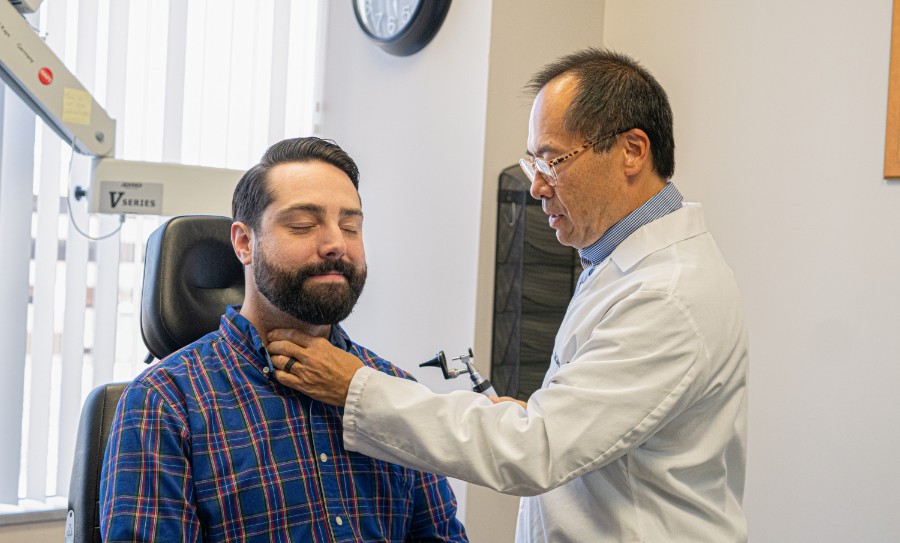
ENT & Allergy Associates, LLP is dedicated to the evaluation and treatment of voice and swallowing disorders and to further the understanding of voice and swallowing through education. The faculty at the Voice & Swallowing Center has invented or pioneered a suite of office-based diagnosis and therapeutic procedures.
What Is Chronic Cough?
Chronic Cough is a cough lasting more than 2 months that does not resolve with rest or medication. A chronic cough usually has multiple causes. Treatment requires pharmacological intervention and behavioral management.
Chronic Cough is a common problem seen in the Voice and Swallowing Center. It is often treated without success as a sinus, allergy, or lung problem or as a functional problem that people are told to "live with it." Chronic cough can be extremely debilitating. One of the most often overlooked causes of chronic cough is Paradoxical Vocal Fold Motion Disorder (PVFMD). PVFMD is known by many different names such as vocal fold dysfunction, vocal stridor, irritable larynx syndrome, and adult-onset asthma.
Schedule Your Appointment Today!
At ENT & Allergy Associates, we know the importance of having a healthy voice and swallowing function. Our team of experts specializes in providing compassionate care with an individualized approach to help you achieve optimal health. So don't wait any longer – contact your local ENT & Allergy Associates office today to schedule an appointment! With us by your side, you can have the confidence to regain your voice and feel more comfortable speaking, eating, drinking, and living life more fully again.
Contact us to learn more about our treatments for PVFMD and other coughing conditions.
Patients with PVFMD often complain of:
- Severe long-term cough
- Occasional changes in voice quality
- Increased breathing difficulty around soap powders, perfumes, and other odors
- Shortness of breath or air hunger
- Wheezing or other breathing noises associated with breathing
Despite the use of steroids, inhalers, or other pharmacological agents, cough and breathing difficulties persist in people with PVFMD.
At ENT & Allergy Associates, a standard series of tests are used to diagnose PVFMD. An experienced voice pathologist does a perceptual assessment of the voice during the visit. The video exam of the larynx is followed by a breathing test to identify the breathing components related to the lungs and the upper airway.
Treatment for PVFMD is comprehensive and carried out by an ear, nose, and throat specialist and a voice therapist. Treatment of PVFMD may take as little as 3 weeks or as much as 6 months. The treatment is highly successful and results in a vastly improved quality of life for those who have suffered from cough. A report on this treatment was selected for presentation at the Eastern Sectional Meeting of the 2004 American Academy of Otolaryngology in New York City.
Patient Stories
-
"Beyond expectations, I felt comfortable, at ease, and left without any questions unanswered, knowing that his approach to my situation was working and the right course of treatment."
- R.E. -
"Very professional, kind, and caring doctor. listens to you and how you feel, and also explains everything to you about what is going on. Would definitely recommend him to everyone I know."
- Michael P. -
"Excellent service. Quick, kind, efficient doctors. Rare to say that."
- Michael T.
Less Sick Days, More Living

